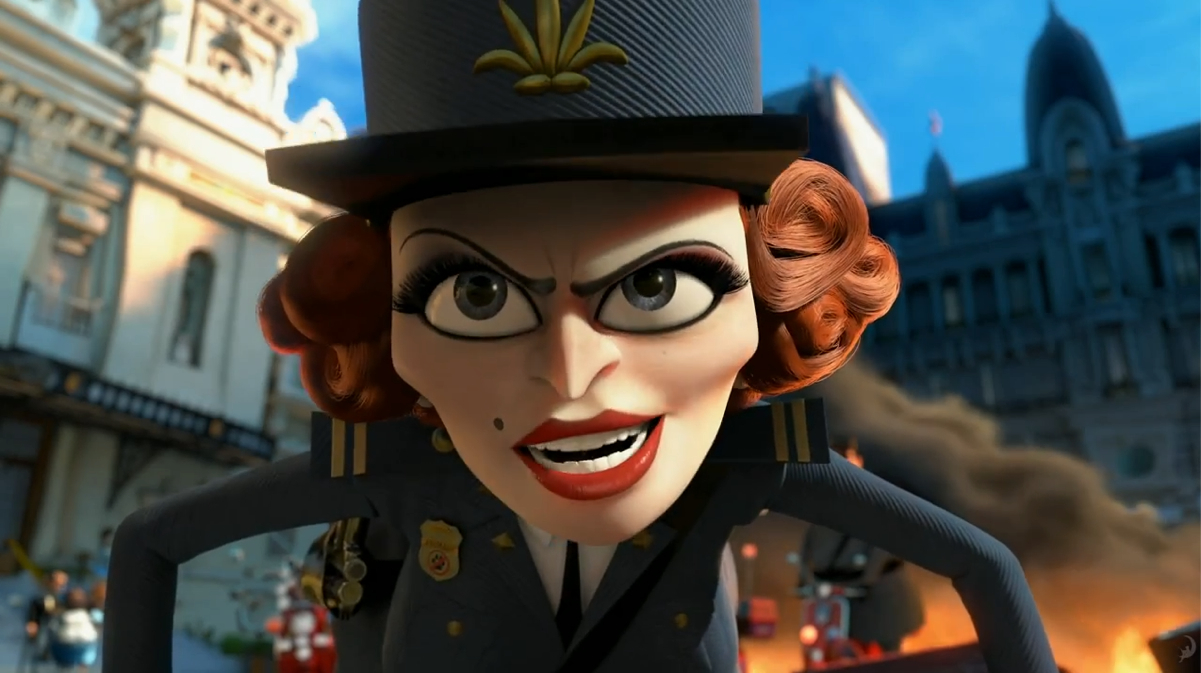2013 GOLDEN GLOBE NOMINATIONS
The breadth of award season contenders came into sharp focus with the announcement of the 2013 Golden Globe nominations overnight in Los Angeles. The bookie favourites are solidifying; bolters like Salmon Fishing in the Yemen have emerged; and, once-fancied contenders (The Dark Knight Rises, The Hobbit, Cloud Atlas) are fading fast.

With the exception of Salmon Fishing..., which got less than stellar notices and did only ok business, there are no particularly out-there, Pia Zadora-like nominations, which were announced by Jessica Alba, Megan Fox and Ed Helms at the Beverly Hilton in front of the the Hollywood Foreign Press voting body.
 Most nominations went to Steven Spielberg’s Lincoln (7, the most ever for a Spielberg-directed film), which is firming as front-runner for Oscar honours, followed by Django Unchained (5), Argo (5), Silver Linings Playbook (4), Les Miserables (4), Zero Dark Thirty (4; pictured, right), The Master (3) and Life of Pi (3).
Most nominations went to Steven Spielberg’s Lincoln (7, the most ever for a Spielberg-directed film), which is firming as front-runner for Oscar honours, followed by Django Unchained (5), Argo (5), Silver Linings Playbook (4), Les Miserables (4), Zero Dark Thirty (4; pictured, right), The Master (3) and Life of Pi (3).
As usual, the real news is in the much-touted names that didn’t get a nod. This year, that dubious honour can be bestowed upon Ben Zeitlin’s Beasts of the Southern Wild and its leading lady, Quvenzhane Wallis; Matthew McConnaughey for either Killer Joe or Magic Mike; director’s David O Russell (Silver Linings Playbook) and Tom Hooper (Les Miserables); Michael Haneke and the cast of Amour (although it did score a Foreign Language Film notice); lead actress Leslie Mann and Judd Apatow’s script for This is 40; Anthony Hopkins’ Hitchcock; Javier Bardem’s electrifying turn as Skyfall’s villain; and, writer/director Rian Johnson for Looper.
 Australian’s Nicole Kidman and Naomi Watts are flying the flag for the Down Under industry. Watts scored a Lead Actress nomination for her role in the tsunami drama The Impossible; Kidman was a double nominee, for her small-town vamp in Lee Daniels’ The Paperboy (gaining serious momentum after her recent SAG nod; pictured, left) and in Philip Kaufman’s telemovie, Hemingway and Gellhorn.
Australian’s Nicole Kidman and Naomi Watts are flying the flag for the Down Under industry. Watts scored a Lead Actress nomination for her role in the tsunami drama The Impossible; Kidman was a double nominee, for her small-town vamp in Lee Daniels’ The Paperboy (gaining serious momentum after her recent SAG nod; pictured, left) and in Philip Kaufman’s telemovie, Hemingway and Gellhorn.
The Golden Globes ceremony will be hosted by actresses Tina Fey and Amy Poehler and will be announced on January 13.
BEST MOTION PICTURE – DRAMA
ARGO
DJANGO UNCHAINED
LIFE OF PI
LINCOLN
ZERO DARK THIRTY
BEST PERFORMANCE BY AN ACTRESS IN A MOTION PICTURE – DRAMA
JESSICA CHASTAIN, ZERO DARK THIRTY
MARION COTILLARD, RUST AND BONE
HELEN MIRREN, HITCHCOCK
NAOMI WATTS, THE IMPOSSIBLE
RACHEL WEISZ, THE DEEP BLUE SEA
BEST PERFORMANCE BY AN ACTOR IN A MOTION PICTURE – DRAMA
DANIEL DAY-LEWIS, LINCOLN
RICHARD GERE, ARBITRAGE
JOHN HAWKES, THE SESSIONS
JOAQUIN PHOENIX, THE MASTER
DENZEL WASHINGTON, FLIGHT
BEST MOTION PICTURE – COMEDY OR MUSICAL
THE BEST EXOTIC MARIGOLD HOTEL
LES MISERABLES
SILVER LININGS PLAYBOOK
MOONRISE KINGDOM
SALMON FISHING IN THE YEMEN
BEST PERFORMANCE BY AN ACTRESS IN A MOTION PICTURE – COMEDY OR MUSICAL
EMILY BLUNT, SALMON FISHING IN THE YEMEN
JUDI DENCH, THE BEST EXOTIC MARIGOLD HOTEL
JENNIFER LAWRENCE, SILVER LININGS PLAYBOOK
MAGGIE SMITH, QUARTET
MERYL STREEP, HOPE SPRINGS
BEST PERFORMANCE BY AN ACTOR IN A MOTION PICTURE – COMEDY OR MUSICAL
JACK BLACK, BERNIE
BRADLEY COOPER, SILVER LININGS PLAYBOOK
HUGH JACKMAN, LES MISERABLES
EWAN MCGREGOR, SALMON FISHING IN THE YEMEN
BILL MURRAY, HYDE PARK ON HUDSON
BEST ANIMATED FEATURE FILM
BRAVE
FRANKENWEENIE
HOTEL TRANSYLVANIA
RISE OF THE GUARDIANS
WRECK-IT RALPH
BEST FOREIGN LANGUAGE FILM
AMOUR (AUSTRIA)
A ROYAL AFFAIR (DENMARK)
THE INTOUCHABLES (FRANCE)
KON-TIKI (NORWAY/UK/DENMARK)
RUST AND BONE (FRANCE)
BEST PERFORMANCE BY AN ACTRESS IN A SUPPORTING ROLE IN A MOTION PICTURE
AMY ADAMS, THE MASTER
SALLY FIELD, LINCOLN
ANNE HATHAWAY, LES MISERABLES
HELEN HUNT, THE SESSIONS
NICOLE KIDMAN, THE PAPERBOY
BEST PERFORMANCE BY AN ACTOR IN A SUPPORTING ROLE IN A MOTION PICTURE
ALAN ARKIN, ARGO
LEONARDO DICAPRIO, DJANGO UNCHAINED
PHILIP SEYMOUR HOFFMAN, THE MASTER
TOMMY LEE JONES, LINCOLN
CHRISTOPH WALTZ, DJANGO UNCHAINED
BEST DIRECTOR – MOTION PICTURE
BEN AFFLECK, ARGO
KATHRYN BIGELOW, ZERO DARK THIRTY
ANG LEE, LIFE OF PI
STEVEN SPIELBERG, LINCOLN
QUENTIN TARANTINO, DJANGO UNCHAINED
BEST SCREENPLAY – MOTION PICTURE
MARK BOAL, ZERO DARK THIRTY
TONY KUSHNER, LINCOLN
DAVID O. RUSSELL, SILVER LININGS PLAYBOOK
QUENTIN TARANTINO, DJANGO UNCHAINED
CHRIS TERRIO, ARGO
BEST ORIGINAL SCORE – MOTION PICTURE
MYCHAEL DANNA, LIFE OF PI
ALEXANDRE DESPLAT, ARGO
DARIO MARIANELLI, ANNA KARENINA
TOM TYKWER, CLOUD ATLAS
JOHNNY KLIMEK, REINHOLD HEIL
JOHN WILLIAMS, LINCOLN
BEST ORIGINAL SONG – MOTION PICTURE
FOR YOU, ACT OF VALOR
Music by: Monty Powell, Keith Urban Lyrics by: Monty Powell, Keith Urban
NOT RUNNING ANYMORE, STAND UP GUYS
Music by: Jon Bon Jovi Lyrics by: Jon Bon Jovi
SAFE & SOUND, THE HUNGER GAMES
Music by: Taylor Swift, John Paul White, Joy Williams, T Bone Burnett Lyrics by: Taylor Swift, John Paul White, Joy Williams, T Bone Burnett
SKYFALL, SKYFALL
Music by: Adele, Paul Epworth Lyrics by: Adele, Paul Epworth
SUDDENLY, LES MISERABLES
Music by: Claude-Michel Schonberg Lyrics by: Alain Boublil, Claude-Michel Schonberg
 Simon Foster
Simon Foster















